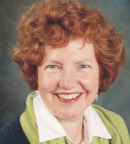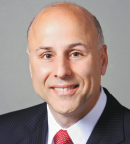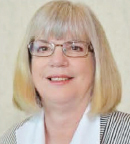When Yelak Biru was diagnosed with multiple myeloma in 1995, he and his physicians had one main posttreatment goal: to detect and treat any relapse early and to prolong survival as long as possible with the limited drugs available. Then, in the early 2000s, came newer treatments. Myeloma survival rates rose, survival times lengthened, and patients, including Mr. Biru, found they could begin thinking of survival in a new way.

Julia Rowland, PhD
“Survivorship used to be about living as long as possible,” said Mr. Biru, in an opening speech at the National Comprehensive Cancer Network® (NCCN®) Patient Advocacy Summit: Addressing Survivorship in Cancer Care. “Now, it’s more about living as long as possible with the best quality of life possible,” he said.
Today, about 70% of people diagnosed with cancer survive for 5 years or more. As the number of cancer diagnoses grows, in line with an aging population, so does the number of survivors and the recognition that they have a special set of needs. This increasing focus on the needs of survivors “is an issue we’re lucky to have,” said Julia Rowland, PhD, retired Director of the National Cancer Institute’s Office of Cancer Survivorship and a senior advisor at the Smith Center for Healing and the Arts.

Linda House, RN
Indeed, there has been increasing urgency, on the part of both patients and clinicians, to address these needs. “We’re having conversations we’ve never had before, and that’s a good thing,” said Linda House, RN, President of the headquarters office of the Cancer Support Community in Washington, DC.
Part of this continuing conversation was the NCCN meeting, which brought together advocates and other stakeholders—oncologists, policymakers, employers, and industry representatives—to explore specific survivorship issues facing patients and clinicians.
An Explosion of Issues
For patients, one of the basic challenges of long-term survival is adjusting to the continuing effects of the disease and its treatment. “Living through and beyond a cancer diagnosis can have a profound effect on people’s physical, psychological, social, economic, and spiritual well-being,” said NCCN’s Chief Executive Officer Robert W. Carlson, MD, who opened the meeting. “There is an explosion of issues to be dealt with.”

Living through and beyond a cancer diagnosis can have a profound effect on people’s physical, psychological, social, economic, and spiritual well-being. There is an explosion of issues to be dealt with.— Robert W. Carlson, MD
Tweet this quote
“To say that it is all over—that life will return to normal—is unrealistic,” said Mr. Biru, who leads the North Texas Myeloma Support group and serves as a board member of the International Myeloma Foundation. “What survivors most need to know is how to live with, not for, their cancer.”
As panel moderator Clifford Goodman, PhD, Senior Vice President of the Lewin Group, summed it up, survivors learn “how to integrate their survivorship into their lives.”
Medical issues can include not only long-term toxicities from treatment, such as anthracycline-induced heart problems, but also the risk of opioid addiction and the need for palliative care. On the psychosocial front, survivors may have to deal with major life changes, involving, for instance, their employment and financial status. Cancer can affect relationships. Fear of relapse, depression, and general anxiety are common among survivors.
One response to these challenges has come from the patient advocacy and support groups that now address a wide range of cancers—for example, Fight Colorectal Cancer, LUNGevity, Living Beyond Breast Cancer, the National Ovarian Cancer Coalition, the Cholangiocarcinoma Foundation, and the Kidney Cancer Foundation. Their programs range from print materials and resource guides to online and telephone helplines, clinical trial matching services, patient navigation tools, cancer survivor retreats, and more.

Clifford Goodman, PhD
Advocates also play an active role on many advisory groups. Mr. Biru, for instance, is a voting member of the National Cancer Institute’s Myeloma Committee, where he can advocate for trials with protocols and endpoints that take quality of life into consideration.
In the Clinic
The growing number of survivors and survivorship issues also has had an impact on clinical practice. Clinical guidelines from both ASCO and NCCN address survivorship issues, including psychosocial and medical effects. NCCN also publishes guidelines for patients, which reflect the recommendations in the NCCN Clinical Practice Guidelines in Oncology (NCCN Guidelines®) used by physicians to guide treatment decisions. The NCCN Guidelines for Patients® help patients understand their treatment options so they can advocate for their own best care, said Joan McClure, MS, NCCN’s Senior Vice President of Clinical Information and Publications.

Joan McClure, MS
Long-term follow-up, however, is often in the hands of physicians who are not oncologists. “One of the big challenges is how to educate primary care physicians on the management of posttreatment care and to make sure they get the experience they need,” Dr. Carlson said in an interview. A key issue for oncologists, nurse navigators, and others is how to coordinate follow-up care as patients transfer back to primary care physicians and perhaps other specialists.
Comprehensive, detailed survivorship care plans, first created and promoted in the 1990s, were conceived as part of a solution to this issue, but they have not been widely used for various reasons: They are complex and extremely time-consuming to put together, and studies have so far not shown that they make a significant difference in outcomes. Another obstacle to their use is the lack of reimbursement for the time involved, say many experts. Proposed federal legislation, championed by the National Coalition for Cancer Survivorship, would mandate Medicare coverage of survivorship care plan preparation.

James McCanney, JD
Another potential aid in coordinating ongoing clinical care for survivors are electronic health records, but they are still not universally used and come in many different formats with different components. A frequent theme at the meeting was the need for uniform electronic health records.
While the summit delved into the challenges of survivorship, it also conveyed visions of a field moving forward. When Dr. Goodman asked panelists to name what they would most like to see in the way of progress, the answers came readily: universal electronic health records, well-designed clinical trials with survivorship endpoints, reimbursement codes for survivorship planning and nurse navigators, and more emphasis on quality of life and psychosocial issues.
The answers reflected the sense of possibility and progress that was evident throughout the day, noted James McCanney, JD, a policy/advocacy fellow at NCCN, who organized the meeting. “It was clear that progress has been made,” he said, “and that more is coming.” ■
DISCLOSURE: Drs. Rowland, Carlson, and Goodman, Ms. House, Ms. -McClure, and Mr. McCanney reported no conflicts of interest.
NCCN PATIENT ADVOCACY SUMMIT
Theme: Addressing Survivorship in Cancer Care
Held: December 1, 2017, in Washington, DC
Proceedings: To be published in spring 2018, in JNCCN–Journal of the National Comprehensive Cancer Network
Save the date: December 10, 2018—for this year’s NCCN Patient Advocacy Summit: Advocating for Equity in Cancer Care

